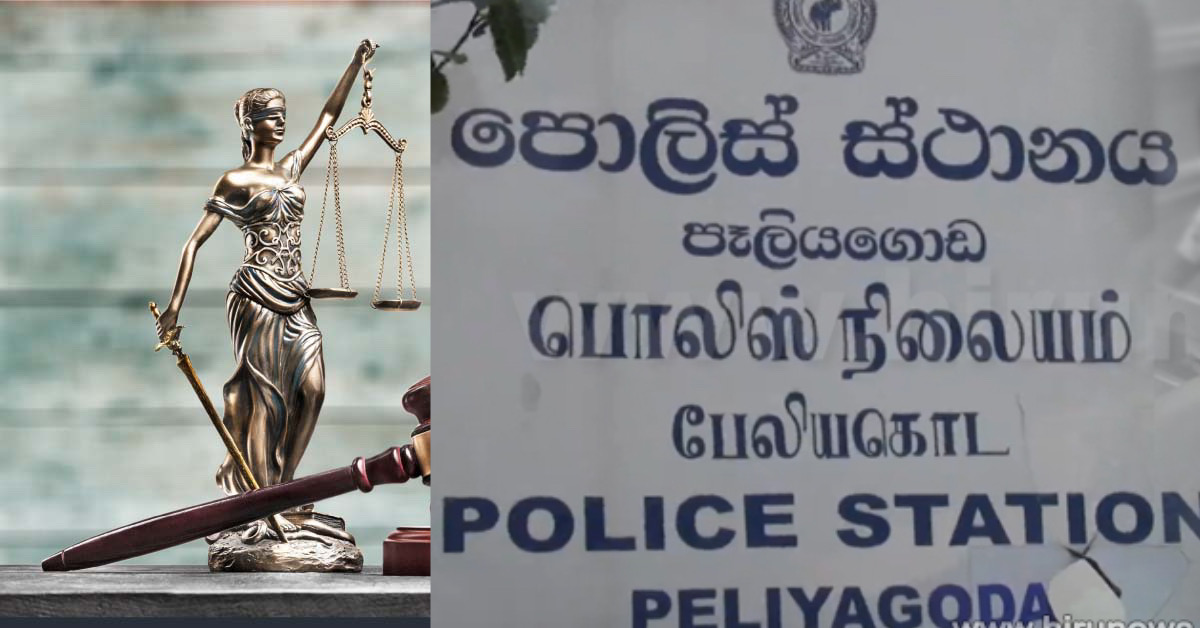The Supreme Court has awarded one million rupees against the five Police Officers attached to Peliyagoda Police Station as compensation for torture leading to the death of a father of two children, a seven-year-old son and a daughter of one month at the time of his death.
Delivering the judgment, the presiding judge, Justice Preethi Padman Surasena, ordered that out of the sum of one Million rupees awarded as compensation, a sum of Rs.500,000 should be invested in the names of the two children in equal shares in a state bank.
According to the judgment, the Supreme Court awarded a sum of one million rupees as compensation, of which a sum of Rs 750,000 should be paid by the State and Rs 50,000 each by the five respondents personally. The Supreme Court ordered to pay the compensation within four months from the date of the pronouncement of the judgment.
.The Post Mortem examination revealed the cause of death was due to extensive muscle and soft tissue contusions caused by blunt force trauma
The petitioner Nilmini Vijesekara, the spouse ofthe victim, Chadik Shyaman Wickramarachchi, who died in Police custody, had filed a Fundamental Rights petition in the Supreme Court, seeking a declaration that the respondents have violated the fundamental rights of her husband.
Justice Preethi Padman Surasena, Justice Janakde Silva and Justice Mahinda Samayawardenaheld that the five respondents infringed the fundamental rights of Chadik ShyamanWickramarachchi, the husband of NilminiWijesekara guaranteed under Article 11 for freedom from torture and 12(1) of the Constitution.
Sumedha Thushanga, Indika Priyadharshana, Chanaka Rukman, Ajith Jayalal, and LahiruRoshan, five police constables, arrived at their home in Kaduwela around four o clock in the morning on February 25, 2017, and arrested her husband Chadik Shyaman and took him to Peliyagoda Police Station, the petitioner stated
The Petitioner was also present at the time of the said arrest and identified the respondents as police officers from the Peliyagoda Police Station.
When asked for the reasons for taking him to the police station, the respondents had stated they wanted to record a statement from ChadikShyaman over a robbery.
Around 9.00 am on February 25, 2017, the Petitioner (Wife) had gone to her husband’s house to visit Peliyagoda Police Station. It was at that time she was informed that her husband had died and the body was lying at the Colombo General Hospital.
The wife of the victim said, one high ranking police officer explained to her that ChadikShyaman was arrested, in connection with a robbery of a car and jewellery in Kelaniya and Bandarawatte, that her husband had fallen sick, suffering from a wheezing attack when a statement was being, recorded and thereafter he was admitted to the hospital.
The Petitioner (Wife of the victim) states that this briefing is manifestly false given the findings in the postmortem report.
The Consultant Judicial Medical Officer who conducted postmortem examination had observed twenty-eight external injuries on the body of the Petitioner’s husband.
The Consultant Judicial Medical Officer has described these injuries as signs of recent injuries and identified the injury pattern as one commonly seen in torture.
It was clear from the findings of the Post Mortem Examination, that the Petitioner’s husband’s death was not due to a wheezing attack. The Post Mortem Report is clear that the cause of death is due to extensive muscle and soft tissue contusions caused by blunt force trauma.
Attorney General who had directed to file charges against the five respondents for an offence punishable under section 296 of the Penal Code and conduct a non-summary inquiry in the relevant Magistrate’s Court.
After the conclusion of the said non-summary inquiry, the case was again referred to the Attorney General who thereafter having considered the available material had taken steps to indict the five respondents under section 2(4) of the Convention Against Torture and Other Cruel Inhuman, Degrading Treatment or Punishment Act No. 22 of 1994 in the High Court of Colombo.





